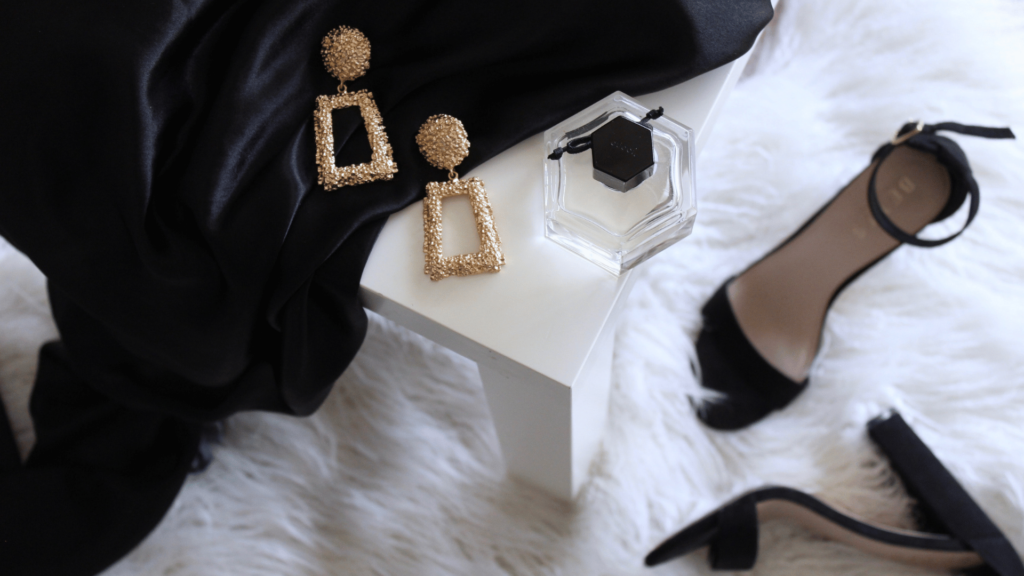Are you passionate about fashion and design? Do you have a keen eye for detail and a flair for creativity? If so, a career as an accessory designer might be the perfect fit for you.
Accessory designers play a crucial role in the fashion industry, creating unique and stylish accessories that complement and enhance an outfit. In this article, we will explore the exciting world of accessory design and provide you with valuable insights on how to pursue a successful career in this field.
What Does an Accessory Designer Do?
Accessory designers are responsible for creating a wide range of accessories, including handbags, shoes, jewelry, belts, hats, and more. They work closely with fashion designers to ensure that the accessories they create align with the overall aesthetic of a collection.
Accessory designers must have a strong understanding of current fashion trends, materials, and manufacturing processes to bring their designs to life.
Skills and Qualifications
Many colleges and universities offer programs specifically focused on accessory design, providing students with the opportunity to develop their skills and build a strong portfolio of work. In addition to formal education, accessory designers should possess the following skills:
- Creativity: The ability to generate innovative and unique design ideas.
- Attention to Detail: A keen eye for detail and a focus on precision.
- Technical Skills: Proficiency in design software, pattern-making, and other technical aspects of accessory design.
- Communication Skills: The ability to effectively communicate ideas and collaborate with others in the industry.
Building Your Portfolio
A strong portfolio is essential for aspiring accessory designers to showcase their talent and creativity. Your portfolio should include a diverse range of work, demonstrating your skills in different types of accessories and materials. Consider including sketches, technical drawings, and photos of finished pieces to highlight your design process and aesthetic.
One way to build your portfolio is to take on internships or freelance projects in the fashion industry. This will not only provide you with valuable experience but also allow you to make connections and network with professionals in the field. Additionally, participating in design competitions or showcases can help you gain exposure and recognition for your work.
Networking and Industry Connections
Networking is crucial in the fashion industry, and building relationships with other designers, manufacturers, and retailers can open doors to exciting opportunities. Attend industry events, fashion shows, and trade fairs to meet professionals in the field and learn about the latest trends and developments.
Consider joining professional organizations such as the Accessories Council or the Council of Fashion Designers of America (CFDA) to connect with other accessory designers and gain access to valuable resources and support. Building a strong network of industry contacts can help you stay informed about job openings, collaborations, and other career opportunities.
Education and Training
While a formal education is important for aspiring accessory designers, continuous learning and professional development are also key to staying competitive in the industry. Consider enrolling in workshops, seminars, or online courses to expand your skills and knowledge in areas such as trend forecasting, sustainable design practices, and digital marketing.
Yellowbrick offers online courses in partnership with top fashion schools and industry experts, providing valuable insights and practical skills to help you succeed as an accessory designer. These courses cover a range of topics, from brand development to product merchandising, giving you the tools you need to thrive in the fast-paced world of fashion.
Top 10 Jobs for Accessory Designers
Accessory designers have a wide range of career options available to them, from working for established fashion houses to launching their own brands. Here are the top 10 jobs for accessory designers:
- In-House Designer: Create accessories for a specific fashion brand or retailer, following their design aesthetic and brand guidelines.
- Freelance Designer: Work on a project-by-project basis for multiple clients, allowing for creative freedom and flexibility.
- Product Developer: Collaborate with manufacturers to bring accessory designs to life, overseeing the production process from start to finish.
- Trend Analyst: Research and identify emerging trends in fashion and design, providing valuable insights to inform design decisions.
- Retail Buyer: Select and purchase accessories for a retail store or online platform, curating a collection that appeals to customers.
- Visual Merchandiser: Create visually appealing displays and presentations for accessories in retail settings, attracting customers and driving sales.
- Brand Manager: Oversee the branding and marketing strategy for an accessory line, ensuring consistency and cohesiveness across all channels.
- Stylist: Work with clients or publications to select and coordinate accessories for fashion shoots, events, or personal styling sessions.
- Accessories Editor: Write and curate content about accessories for fashion magazines, websites, or social media platforms, shaping trends and influencing consumers.
- Entrepreneur: Launch your own accessory brand or line, taking on roles such as designer, marketer, and business owner to bring your vision to life.
Each of these roles offers unique opportunities for growth and creativity, allowing accessory designers to carve out a fulfilling and successful career in the fashion industry.
Whether you prefer the stability of a full-time position or the flexibility of freelance work, there are plenty of paths to explore as you pursue your passion for accessory design.
Key Takeaways:
- Accessory designers play a vital role in the fashion industry by creating unique and stylish accessories that enhance outfits.
- To succeed as an accessory designer, you need a combination of creativity, technical skills, and industry knowledge.
- Building a strong portfolio, networking with industry professionals, and continuous learning are essential for career growth.
- Consider exploring the top 10 jobs for accessory designers to find a career path that aligns with your interests and goals.
As you embark on your journey to become a successful accessory designer, consider enrolling in the FIDM Fashion Design online course and certificate program offered by Yellowbrick.
This program will provide you with valuable insights and practical skills to help you thrive in the dynamic world of fashion design.





